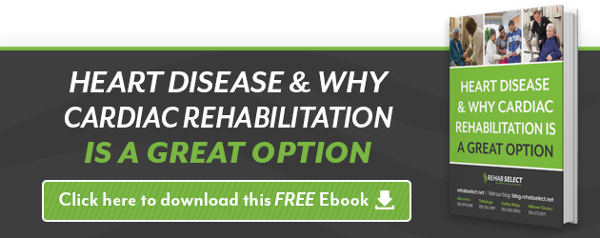
Unlike standard physical therapy that treats conditions using routine procedures, personalized therapy takes all aspects of patient health into consideration. And this customized approach is especially helpful for people with heart disease.
According to the Centers for Disease Control and Prevention, heart disease is the leading cause of death in the United States. Fortunately, many causes of this condition are treatable using a combination of prescription medications and the right treatments.
But the truth is that this condition sometimes progresses into life-threatening heart failure — a chronic disease in which the heart can’t pump blood to the rest of the body as effectively as it should. As it can’t be cured, heart failure requires advanced medicine regimens and treatments.
That’s where personalized cardiac rehab for heart failure can help. It has two goals. First, prevent heart disease from progressing into heart failure. And two, to help manage heart failure once someone experiences it. Here are some of the benefits you can expect from taking a customized approach to heart disease treatment.
1. Learn Heart-Healthy Eating Habits
A poor diet doesn’t cause heart disease directly, but it does trigger conditions that may cause it to develop — like high blood pressure, high cholesterol, and diabetes. Foods that contribute to heart disease are high in salt, sugar, trans fat, cholesterol, and saturated fats. They cause the heart to work harder, increasing the force of blood against the artery walls and contributing to cholesterol buildup in the arteries that can eventually lead to heart disease and exacerbate it.
A healthy diet that consists of unprocessed foods, raw fruits and vegetables, and whole grains can help significantly reduce the symptoms of this disease and reverse some of its underlying causes. Personalized nutritional guidelines built into cardiac rehab programs help you identify meal options that are beneficial for treating heart disease and those that should be avoided at all costs.
When it comes to heart failure, sodium can significantly increase fluid retention, possibly causing worsening symptoms. Also, many medications prescribed for heart failure have a tendency to deplete the body of potassium. So, a professional nutritionist would be able to recommend foods to help balance this side effect.
By following a custom heart-healthy diet, you’ll have fewer adverse symptoms and could even regain the ability to participate in normal physical activities. Personalized therapy that includes dietary counseling can also assist you in maintaining a normal weight, possibly helping mitigate the development of other complex conditions such as diabetes.
2. Sideline Advanced Heart Failure
One of the main aims of treating heart disease is to prevent complete heart failure. According to the American Heart Association, coronary artery disease and heart disease are the main causes of heart failure.
The advanced stage of this condition is incurable, so the overall goal of cardiac rehab for heart failure is to prevent it or treat it as soon as a diagnosis is made. To prevent heart failure, personalized therapy may include physical therapy, which is intended to motivate patients to remain active. By doing so, you can increase your energy, improve muscle mass, and maintain muscle strength.
Regular physical activity also helps reduce blood pressure, balance blood glucose levels, and condition your heart. Personalized cardiac rehab for heart failure is more beneficial than group therapy since it’s prescribed for specific needs and particular stages of heart disease.
3. Cardiac Rehab Programs Help Prevent Future Complications
As if heart failure was stressful enough, it can also increase the chances of other negative health outcomes such as kidney failure, stroke, or death. Medications may help reduce the risk of these complications, but the side effects of these prescriptions could cause tremors, fatigue, weakness, and swelling — all of which can make traditional physical therapy more difficult.
In personalized cardiac rehab programs, the therapist will work around your heart disease symptoms and those you’ve developed from taking preventive medications. They’ll also examine other areas of your life that could be contributing to future complications — like smoking, drinking, or experiencing high levels of stress — and carefully recommend important lifestyle modifications to put you on the right track.
Find Personalized Cardiac Rehab Programs in Alabama
By following your personalized therapy sessions as prescribed, you could successfully improve the symptoms of heart disease with time. In addition, opting for cardiac rehab for heart failure could help stave off more adverse health events and mitigate the damage if your condition progresses.
If you’re in the Alabama area, reach out to one of Rehab Select’s team members to discuss a personalized cardiac rehab program near you.





